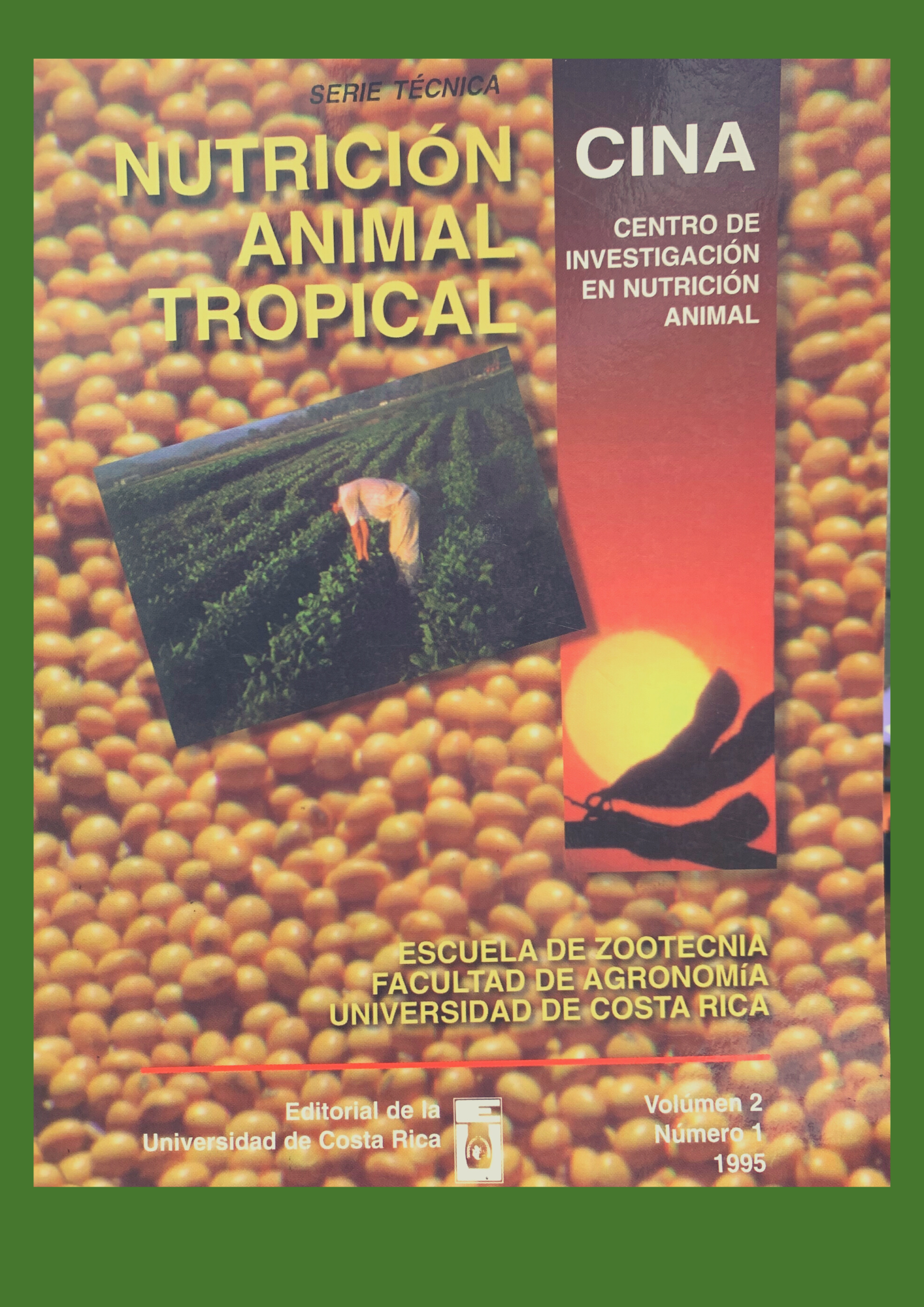Resumen
Iodine in bovine nutrition. A review. Iodine is an essencial element in animal nutrition. Although the only function of this element is to be part of the thyroid hormones (thyroxine and triidothyronine); these have an important rol in thermoregulation, intermediary metabolism, growth and development, hematopoiesis and circulation, neuromuscular functioning and reproduction. Iodine is mainly concentrated in the thyroid tissue. In the adult bovine this gland has nearly 100 mg of iodine, which is considered an important amount since this is a micromineral and the thyroid only weights 30 g. Because 90 % of iodine present in the Protein Binding Iodine (PBI) corresponds to tiroxine and 10 %, to triiodothyronine, the analysis of the PBI is are excellent indicator of the iodine nutritional status of the animal. Normal values of PBI range from 2J3 to 4.77 g/700 ml in the different categories of bovines. Iodine content of milk is affected by the level of this element in feed as well as for the use of iodine desinfectants as test dips or udder washes. Milk and milk products are considered a good source of this element for human nutrition. Iodine deficiency is very common and affects mainly inland areas. Low levels in the diet affects reproduction of cows, causing irregular estrous cycles, Iow conception rates as well as resorbed fetuses, abortions, stillbirts or calves may be born with gaiter, blind, hairless or weak. Male fertility may also be affected decreasing libido and semen quality. Likewise, severe Iodine deficiency may reduce milk production or growth rate. A common feeding practice to prevent the deficiency is to supplement salt containing 0.01-0.02% of Iodine' Sources frecuently used to supplement this element are Calcium lodate, Ethylenediamine Dihydriodade and estabilized Potassium todide. Requirements for dairy cattle range from 0'6 mg/Kg of DM for lacting cows to 0.25 for calves, growing heifers and bulls, for the different categories of beef cattle requirements are 0'5' Although bovine can tolerate Iodine levels far in escess of their requirements, a level of 50 mg/Kg of DM has been suggested as the maximum tolerable level. In Costa Rica there is no information of the Iodine contents of forages or soils; because our country is in a Iodine defficient area, feeding practices usually include the supplementation of this element

